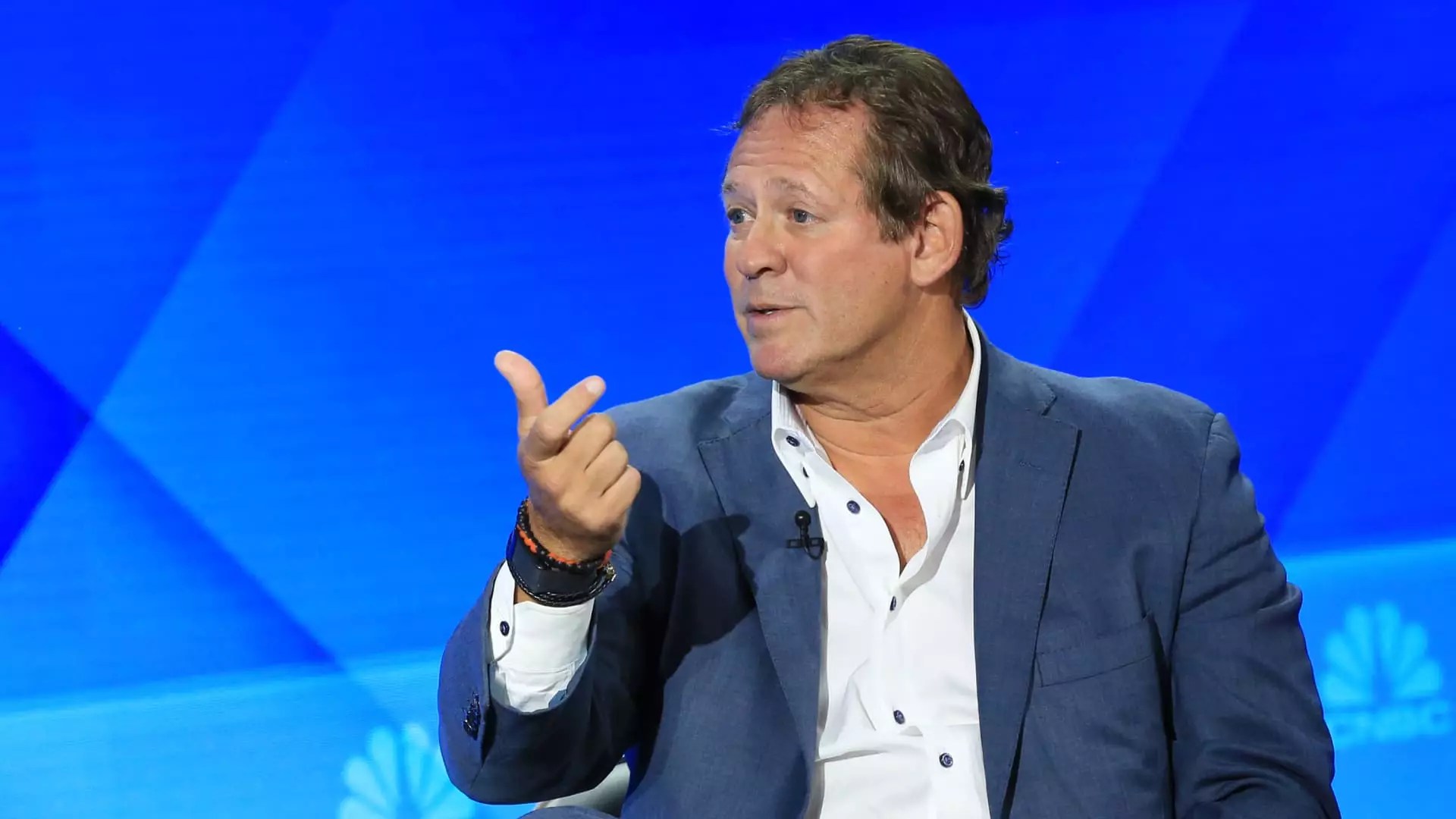BlackRock’s Chief Investment Officer for Global Fixed Income, Rick Rieder, has once again turned the spotlight onto high-yield bonds, offering insights that may surprise both seasoned and novice investors alike. The current landscape, post-tariff volatility and recent credit rating downgrades, paints a complex picture for bonds. Notably, Rieder advocates for focusing on bonds with maturities in the three- to five-year range. This strategic move stems from the expectation of heightened volatility in long-term yields, primarily influenced by external shocks such as credit downgrades.
A recent downgrade of the U.S. credit rating by Moody’s from Aaa to Aa1 led to a significant upheaval in the bond market. The yield on 30-year Treasurys climbed to alarming heights, exceeding 5.03% before settling back down. Such fluctuations naturally render long-term investments riskier, an alarming signal for those entrenched in traditional investment strategies. Rieder’s cautious approach underscores an essential truth: adaptability in investment strategies is paramount amidst ever-evolving economic conditions.
Beyond the Traditional: Assessing Risk Factors and Opportunities
Throughout his examination of the current market, Rieder demonstrates an astute awareness of risk management. His recent decisions, including a reduction in high-yield exposure in the iShares Flexible Income Active ETF (BINC), underline a proactive mindset rather than a reactive one. While many investors succumb to the allure of high-yield returns, Rieder’s strategy champions a more disciplined and discerning approach.
The decision to bypass lower-rated CCC bonds may be viewed as overly cautious, but such sentiment aligns with economic realities. In a landscape where economic slowdowns loom, default risks for these lower-rated securities become elevated. By zeroing in on BB-rated bonds, Rieder reveals a calculated philosophy: higher quality bonds bear the brunt of crossover investment, thus appearing attractive even amidst uncertainty. It’s a sobering reminder that sometimes the safest route to navigate market turbulence lies within high-quality options.
The Allure of B-Rated Bonds: A Delicate Balancing Act
Amidst this cautious landscape, Rieder holds a firm belief in the potential of B-rated bonds, dubbing this tier as “the sweet spot.” The sweet spot is not merely a catchy phrase; it encapsulates a strategic balance of risk and reward absent in other ratings. Investors looking for yield may find solace in B-rated offerings, offered at a time when credit health remains relatively robust compared to historical standards.
Nevertheless, the appeal of B-rated bonds signals a broader trend towards recalibrating our understanding of value investing. As Rieder aptly puts it, “Credit is in as good a shape as I’ve seen it in 30 years.” This proclamation serves both as an encouragement and a caution, challenging investors to reassess their risk appetite amidst a backdrop of market volatility.
The Evolving Landscape of Real Estate and Foreign Markets
Adopting a barbell investment strategy—where high-yield assets coexist alongside low-risk mortgage-backed securities—Rieder’s approach encourages a diversified financial ecosystem. Far from the traditional realm of risk aversion, this strategy serves as a proactive method of capitalizing on market fluctuations. The incorporation of government-backed agency mortgage securities reflects an intelligent pivot, minimizing exposure to credit risk while still harnessing potential upside during times of volatility.
Moreover, Rieder’s curiosity extends to European sovereign bonds, especially those in Germany and peripheral nations like France and Italy, thereby emphasizing an essential lesson: opportunity might reside in unexpected international waters. The current normalized interest rates present compelling value equations for dollar-based investors. After years of prevailing low or even negative rates, the prospect of steep yield curves from European bonds adds a unique layer to the investment narrative: understand your global options.
Rieder’s insights into high-yield bonds, particularly against the backdrop of recent volatility, serve as an imperative call to action for investors. The nuanced approach towards quality, strategic diversification, and global exploration underlines a pivotal mindset necessary for success in the evolving landscape of fixed-income investing. Adaptability, discernment, and strategic optimism could prove invaluable assets as the financial markets continue to shift beneath our feet.


Leave a Reply